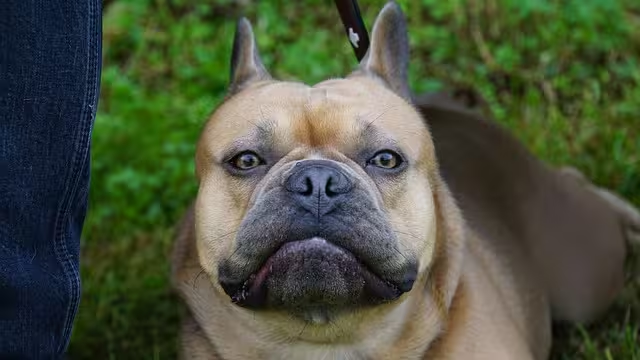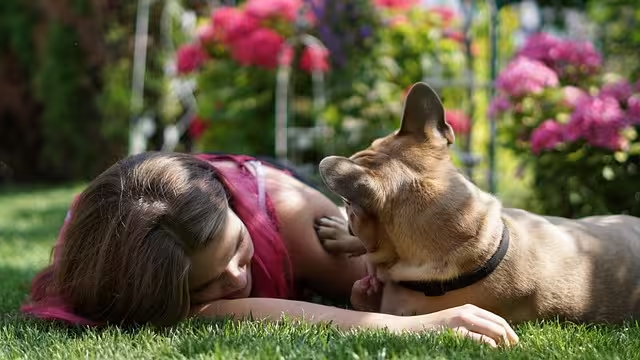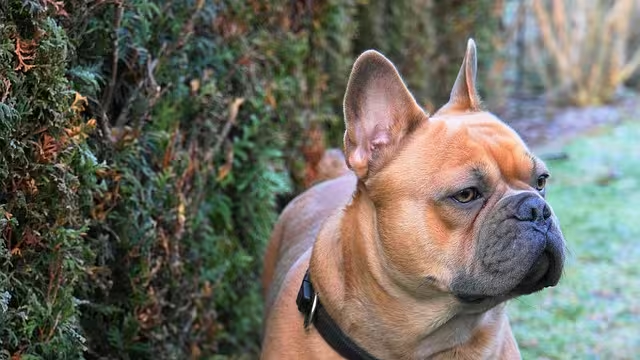When it comes to dog breeds, the Bulldog stands out as one of the most loved and recognizable types in the world· Known for their distinctive wrinkled face and stocky build, Bulldogs are celebrated for their calm demeanor and friendly nature· This breed is particularly well-suited for families, especially those with children, making them a preferred choice among pet owners· In this comprehensive guide, we will explore various aspects of Bulldogs, including their traits, history, and care requirements, providing you with a thorough understanding of this charming breed·
Key Traits of the Bulldog
Temperament: Gentle, Affectionate, and Calm
Bulldogs are often referred to as gentle dog breeds due to their friendly demeanor, which frequently draws attention in social settings. They typically enjoy human interaction and are quite sociable. This characteristic makes them an excellent breed for families, as they are usually patient and tolerant of the playful behavior of young children. Their instinct to protect their families enhances their appeal, making them both loving and vigilant companions. When you meet a Bulldog, you can’t help but notice their unique looks and the warm spirit they bring. These traits are often highlighted by kennel clubs, showcasing how Bulldogs stand out among various breeds, including terriers, for their affectionate nature and loyalty.

Size: Medium
Bulldogs are classified as a medium-sized dog breed· Typically, they weigh between 40 to 50 pounds and stand about 14 to 15 inches tall at the shoulder· Their compact size makes them suitable for various residential situations, including apartments and homes with limited space· Despite their stocky build, Bulldogs are surprisingly agile, which can be a delight to watch as they move about· Their moderate size allows them to be both robust and manageable, making them an excellent choice for families living in urban environments· Bulldogs do not require extensive space to thrive, but they benefit from having a designated area where they can relax and play· When considering adopting a Bulldog, it’s important to note that their unique appearance and friendly nature make them a well-liked choice among dog lovers·
Energy Level: Low to Medium
When considering dog breeds, energy levels can vary significantly. Bulldogs are generally classified as having a low to medium energy level. They do not require extensive exercise, which makes them ideal for families with a more relaxed lifestyle. A few short walks each day and some playtime in the yard are usually sufficient to keep them happy and healthy. Their lower energy requirements do not mean they are inactive; rather, they enjoy moderate activity. Bulldogs often prefer short bursts of playtime over long, strenuous exercise sessions. This makes them perfect dog breeds for families who might not have the time or ability to engage in high-energy activities daily.
Trainability: Moderate
In terms of trainability, Bulldogs are moderately intelligent dogs. They can learn commands and tricks, but they may also exhibit a stubborn streak. This is not uncommon in many dog breeds, particularly those bred for their unique traits rather than for working intelligence. Consistent, positive reinforcement training methods work best with this breed. Patience and understanding are key when training Bulldogs, as they may take their time to grasp new concepts. Training should begin at an early age, as socialization and basic command training are essential for well-adjusted behavior. Bulldogs respond well to treats, praise, and gentle encouragement. Keeping training sessions short and engaging is crucial to maintain their interest. Taking notes on their progress can also be helpful to track what methods work best for each dog breeds.
The Bulldog’s History
The Bulldog’s history is rich and storied· Originally raised in England for bull-baiting, these dogs were valued for their strength and tenacity· Fortunately, with the banning of bull-baiting in the 19th century, Bulldogs were raised for companionship rather than aggression· Their friendly demeanor and affectionate nature have made them a beloved species in many homes·
The transition from a working dog to a family companion marked a significant change in the breed’s characteristics. Breeders focused on traits such as temperament and appearance, which led to the gentle and loving Bulldogs we know today. Over the years, Bulldogs have not only maintained their strong physical presence but have also developed into loyal and affectionate family pets.
The American Bulldog
In the United States, the U·S· Bulldog has gained popularity as a distinct variety· Developed for various purposes, including as working dogs and family dog breeds, they share many traits with their English counterparts but tend to be larger and more energetic· The U·S· Bulldog is also recognized by the American Kennel Club (AKC) and has unique characteristics that appeal to different types of dog owners·
U·S· Bulldogs are often bred for their strength and versatility, making them suitable for various roles, including guarding and participating in dog sports· Their friendly nature makes them excellent dog breeds, while their cognition and energy levels allow them to excel in training· These dog breeds thrive on human interaction and can adapt to diverse environments, further enhancing their appeal to potential owners· National Bulldogs are known for their adaptability and charm·
Bulldogs and Families
Bulldogs excel in family environments· Their gentle and affectionate nature makes them particularly good with children· They are noted to be patient playmates and often enjoy being part of family activities· Bulldogs thrive on human interaction and are noted to be protective of their families, making them excellent guardians as well·
A Great Companion for Kids
Kids can be rough and tumble, but Bulldogs are patient and tolerant of their antics· This type often enjoys being around children, forming strong bonds with them· Their calm demeanor means they are less likely to react negatively to the noise and chaos that often accompany family life· Bulldogs tend to be laid-back, allowing them to adapt to the lively nature of a household with children·
Moreover, Bulldogs are often seen as nurturing figures within the family. They can be quite protective and will keep a watchful eye on their younger family members. This instinct makes them not just pets but also guardians for children. Their affectionate nature helps create a secure environment where kids can play and explore without fear.
Many families appreciate that Bulldogs are generally good with other dog breeds, making them a great addition to multi-pet households· These dogs thrive on companionship and are renowned for their loyalty· In return, they ask for love and attention, making the relationship between Bulldogs and children truly special· Their gentle nature and playful attitude can help teach kids about responsibility and kindness, fostering a strong connection that lasts a lifetime· This makes Bulldogs an ideal choice for families seeking loving dog breeds·

Living with a Bulldog
Space Requirements
Bulldogs are versatile in their housing arrangements· They adapt well to both small and large spaces, making them suitable for apartments or homes with yards· However, it is essential to ensure they have a comfortable area to relax and play· Consistent short walks and play sessions are crucial for their physical and mental well-being· While Bulldogs do not require extensive exercise, they still need some daily activity to maintain their health· A couple of short walks and some playtime can keep them satisfied· These dog breeds thrive on interaction, so engaging them in fun activities, whether it’s a game of fetch or a stroll, helps enhance their overall happiness·
Ensuring that they have a cozy spot to rest after these activities is equally important, as Bulldogs enjoy lounging and relaxing after play. Their calm nature makes them great dog breeds for families and individuals alike. Always be mindful of their unique needs, such as avoiding extreme heat, as Bulldogs can be sensitive to temperature changes. With proper care and attention, these dog breeds can live happily in various environments, providing love and companionship to their owners. Their adaptability, combined with their affectionate nature, makes Bulldogs a popular choice for many dog lovers.
Health Considerations
Like all breeds, Bulldogs come with specific health considerations. Their unique physical structure can lead to certain health issues, including breathing problems and joint issues. Regular vet check-ups are essential to monitor their health. Additionally, Bulldogs are prone to overheating due to their short snouts, so it’s important to keep them cool, especially during hot weather.
Common health concerns for Bulldogs include:
- Brachycephalic Airway Syndrome: This condition affects breathing and can lead to serious health issues, especially in hot weather.
- Hip Dysplasia: is a genetic condition that can cause joint problems and discomfort.
- Skin Conditions: Their folds can trap moisture and dirt, leading to skin infections if not properly cared for.
Maintaining a healthy diet and regular exercise routine is vital for preventing obesity, which can exacerbate health issues.
Popular Bulldog Breeds
While the English Bulldog is the most recognized, several other breeds belong to the Bulldog category· The United States Bulldog and the French Bulldog are also favored choices among dog owners· Each of these breeds has its unique traits, yet they all share a common lineage that contributes to their lovable nature·
The United States Bulldog is recognized for its strength and versatility, making it suitable for various roles, while the French Bulldog is celebrated for its playful and affectionate demeanor· Despite their differences in size and personality, all Bulldogs exhibit a gentle spirit and a strong bond with their families· This shared heritage makes them appealing companions, beloved for their loyalty and affectionate behavior· Whether you prefer the classic look of the English Bulldog, the athleticism of the United States Bulldog, or the charm of the French Bulldog, each type offers something special to dog lovers·
The French Bulldog
The French Bulldog has gained immense popularity in recent years, becoming a favored choice for many dog breeds· Renowned for their small size and playful personality, they are often regarded as excellent dog breeds· Like their English counterparts, French Bulldogs feature a distinctive appearance characterized by their bat-like ears and short snouts, which adds to their charm· These dogs are particularly celebrated for their affectionate nature and their ability to get along well with children, making them a great addition to family households· French Bulldogs tend to have a more playful and energetic disposition compared to English Bulldogs, which makes them ideal for families that enjoy interactive playtime· Their slight size allows them to adapt easily to apartment arrangements, as they don’t require extensive space to thrive·
Moreover, French Bulldogs often form strong attachments to their owners, displaying loyalty and companionship. This breed’s combination of playful energy, affectionate demeanor, and adaptability has contributed to their rise in popularity, making them one of the most beloved dog breeds in urban environments and among families alike. Their charming personalities and endearing looks make them hard to resist.
The U·S· Bulldog
The U·S· Bulldog is larger and more muscular than the English Bulldog· They are recognized for their strength and versatility, often used as working dogs in various roles· Despite their size, they are friendly and affectionate, making them great dog breeds for families·
U·S· Bulldogs require more exercise than their English counterparts, making them suitable for active families who can provide ample physical activity· Their intelligence and eagerness to please make them highly trainable, allowing them to excel in obedience and agility training·
Training Your Bulldog
Basic Commands
Training a Bulldog requires patience and consistency· When thinking about how to start, begin with basic commands such as sit, stay, and come· Use positive reinforcement techniques, such as treats and praise, to encourage good behavior· Bulldogs respond well to a gentle but firm approach, which helps them feel secure while learning· It’s important to keep training sessions short and engaging· Bulldogs can lose interest if sessions are too long or repetitive, so varying the activities can keep them focused and motivated· Incorporating play into training can help maintain their enthusiasm and make learning more enjoyable for both you and your dog breeds·
In addition to basic commands, consider introducing fun tricks or agility exercises, as Bulldogs often thrive in environments that challenge them· Think about using toys or games as rewards, making the learning experience feel like playtime rather than a chore· This playful approach can help reinforce the bond between you and your Bulldog, turning training into a shared adventure· Also, be mindful of their unique personalities; some Bulldogs may require more encouragement than others to engage in training sessions· Observing how they respond to different methods will allow you to tailor your approach, ensuring that each session is productive·
Remember, the goal is not only to teach commands but also to foster a trusting relationship built on mutual respect and understanding· With patience and the right strategies, training can be a rewarding experience that enhances your Bulldog’s behavior and strengthens your connection· Ultimately, a well-trained Bulldog is not just a joy to have but also a wonderful companion who brings happiness to your household.

Socialization
Socialization is crucial for Bulldogs, especially when they are young. Expose them to various environments, people, and other animals to help them develop into well-rounded adults. This exposure will help reduce any potential anxiety or aggression and foster their naturally friendly disposition.
Taking your Bulldog to puppy classes or dog parks can be beneficial for socialization. These experiences allow them to interact with other dog breeds and people, building their confidence and adaptability.
Advanced Training
For owners looking to challenge their Bulldogs further, advanced training options exist· Bulldogs can excel in obedience, agility, and even therapy work· Their friendly nature and willingness to please make them suitable candidates for various training programs, often called “canine sports·” Engaging in activities like obedience competitions or dog sports can also provide mental stimulation and strengthen the connection between you and your Bulldog· These experiences not only enhance their skills but also deepen your relationship, making training an enjoyable and rewarding journey for both you and your dog breeds·
Conclusion
In conclusion, Bulldogs are a gentle and affectionate type that makes a perfect addition to many families· Their calm demeanor, loving nature, and adaptability to various residential situations make them ideal companions for children and adults alike· With moderate exercise requirements and a loyal disposition, Bulldogs truly shine as family dog breeds·
As you explore different dog breeds, consider the unique traits and characteristics that dog breeds offer. Whether you choose an English Bulldog, an U·S· Bulldog, or a French Bulldog, you will find a loyal friend who will bring joy and companionship to your life. If you’re looking for a breed that thrives on love and loyalty, the Bulldog may just be the perfect match for you and your family. By understanding the distinct differences among the Bulldog varieties, you can make an informed decision that best fits your lifestyle and preferences. Bulldogs, in their various forms, continue to capture hearts worldwide, and their rich history, combined with their affectionate nature, ensures they remain a cherished part of many households.







